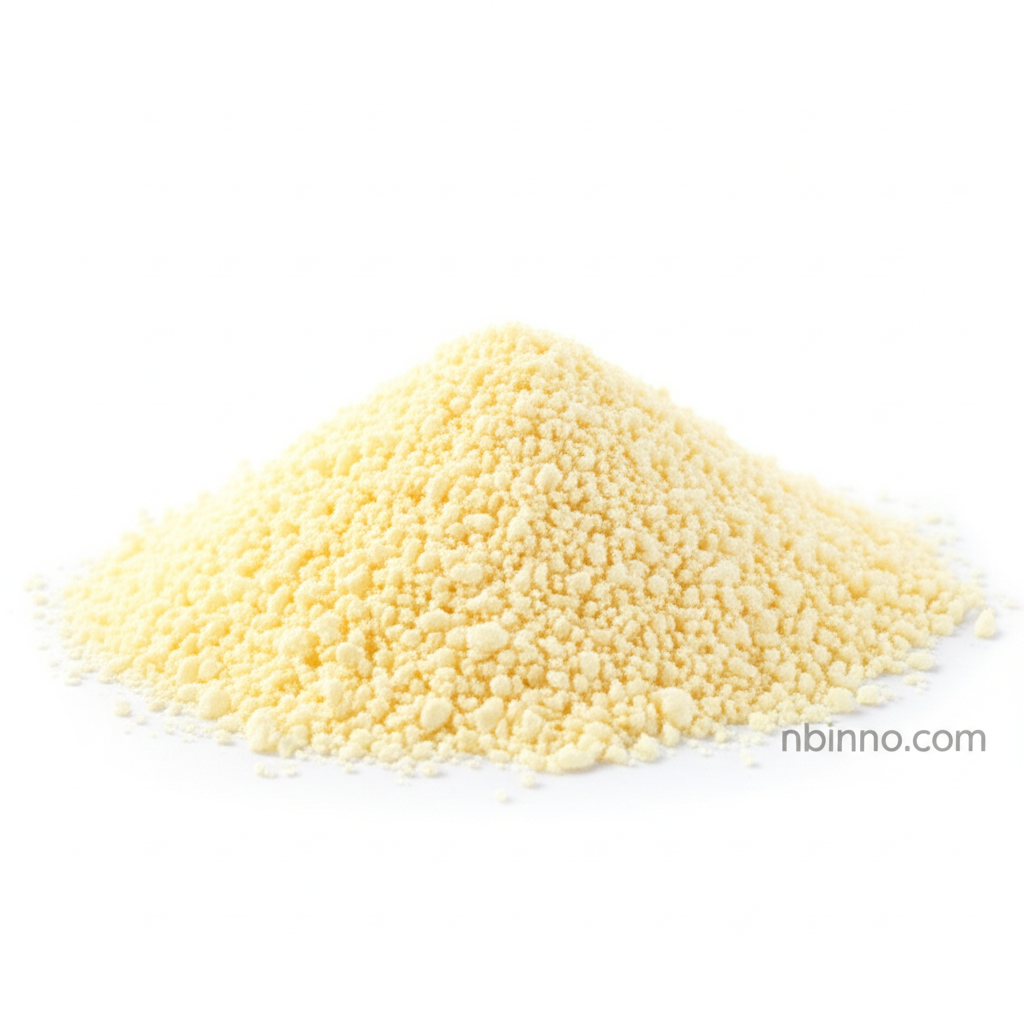Thermostable Phytase Enzyme: Enhancing Animal Nutrition and Sustainability
Discover how Thermostable Phytase can revolutionize animal nutrition, boost growth, and contribute to a more sustainable livestock industry by optimizing phosphorus utilization and reducing environmental impact.
Get a Quote & SampleProduct Core Value

Thermostable Phytase
As a leading supplier in China, NINGBO INNO PHARMCHEM CO.,LTD. offers Thermostable Phytase, a vital enzyme that significantly improves animal feed quality. Its primary function is to break down phytic acid, a major anti-nutritional factor in plant-based feed materials, thereby releasing essential phosphorus and other nutrients. This enzymatic action not only enhances the bioavailability of phosphorus for monogastric animals but also reduces the need for inorganic phosphorus supplementation, contributing to cost savings and environmental protection.
- Discover the benefits of thermostable phytase for animal feed by exploring key long_tail_keyword: improving nutrient absorption in swine.
- Learn how adding phytase to the diet can promote growth and reduce feed costs, a crucial aspect of optimizing feed additive phytase benefits.
- Understand the process of enzymatic hydrolysis of phytic acid and its impact on animal digestion.
- Explore how using phytase can lead to reduced phosphorus pollution with phytase, supporting sustainable animal farming practices.
Advantages Offered
Enhanced Nutrient Bioavailability
Thermostable Phytase effectively degrades phytic acid, increasing the availability of phosphorus and minerals. This directly contributes to improved nutrient absorption in swine and other monogastric animals.
Cost Reduction in Feed Formulation
By improving phosphorus utilization, the need for expensive inorganic phosphorus supplements is reduced. This aspect of feed additive phytase benefits significantly lowers overall feed costs for farmers.
Environmental Protection
Reducing the amount of inorganic phosphorus added to feed also lowers phosphorus excretion in animal waste. This is key to reducing phosphorus pollution with phytase and supporting more sustainable animal agriculture.
Key Applications
Poultry Nutrition
Utilizing thermostable phytase for animal feed enhances phosphorus availability in poultry diets, leading to better growth and reduced environmental impact.
Swine Feed Optimization
For swine, phytase in feed improves nutrient absorption, promoting healthier growth and more efficient feed conversion, a core benefit of phytase enzyme in poultry nutrition.
Aquaculture
The enzyme's ability to improve phosphorus utilization can also benefit aquatic animals, contributing to healthier growth and reduced phosphorus discharge into water bodies.
General Feed Formulation
As a versatile feed additive, thermostable phytase is crucial for optimizing feed formulations across various livestock types, aligning with the goal of improving nutrient absorption in swine.
